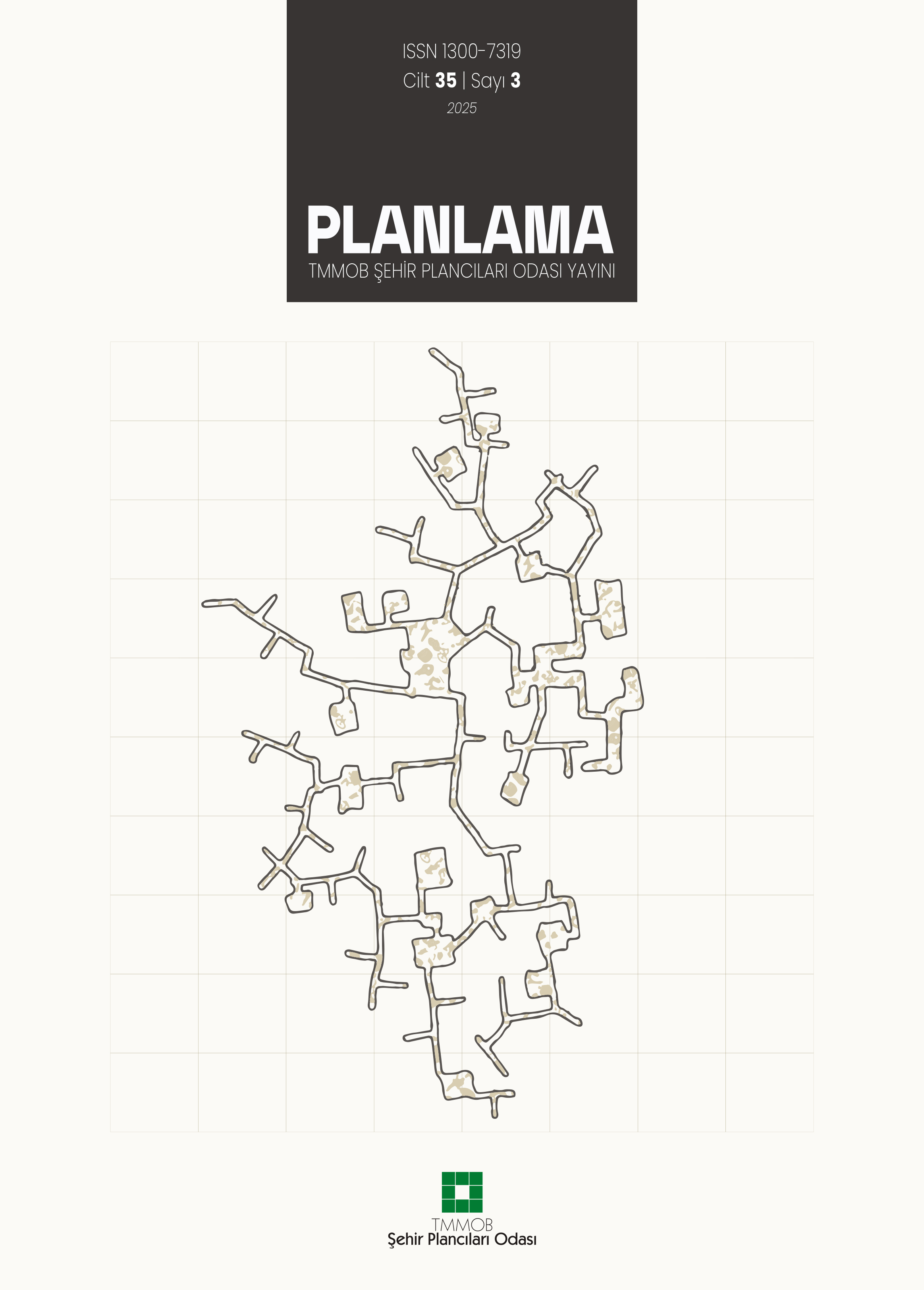Kahramanmaraş ve Hatay Depremlerinin Düşündürdükleri: Suriyeli Mültecilerin Yer Seçim Kararlarının Deprem Tehlikeleri ve Riskleri Açısından Değerlendirilmesi
Z. Ezgi Haliloğlu KahramanÇankaya Üniversitesi Mimarlık Fakültesi, Şehir ve Bölge Planlama Bölümü, Ankara; Cenevre Lisansüstü Enstitüsü, Ticaret ve Ekonomik Entegrasyon Merkezi, CenevreTürkiye hem üzerinden geçen çeşitli fay hatları nedeniyle sismik olarak aktif bir ülke hem de başta coğrafi konumu ve benimsediği politikalar neticesinde dünyada en çok mülteciye ev sahipliği yapan bir göç ülkesidir. Şubat 2023’te yaşanan depremlerin düşündürdüğü konulardan biri, ülkemizde geçici koruma altında bulunan Suriyelilerin bu depremlerden ciddi şekilde etkilenmiş olabileceğidir. Bu kapsamda bu çalışma Suriyeli mültecilerin yer seçim süreçlerini deprem tehlikesi ve riskleri açısından incelemeyi hedeflemiş, bunun için Suriyelilerin yer seçim kararlarını kent, yerleşim bölgesi ve konut ölçeklerinde, Suriyelilerin toplumsal nitelikleriyle birlikte değerlendirilmiştir. Farklı ölçek ve boyutlarda deprem tehlike ve risklerine dair ipuçlarına ulaşabilmek için, Suriyeli mültecilerin yer seçimleri, gündelik yaşantıları, konut memnuniyetleri, bütünleşmeleri ve yaşam kaliteleri konularına odaklanan hem araştırmacının kendi çalışmaları ve ilgili yazındaki araştırmalar hem de Göç İdaresi Başkanlığı’nın kamuya açtığı istatistikler sentezlenmiştir. Bulgular, Suriyeli nüfusun büyük bölümünün deprem tehlikesi içeren kentlere dağılmış olduğunu ve böylece bu kentlerdeki depremden etkilenebilecek nüfusun arttığını, bu durumun Suriyeliler için olduğu kadar ilgili kentler açısından da önemli riskler taşıdığını göstermiştir. Diğer yandan, Türkiye’de kentlere dağılan Suriyelilere yönelik konut ve yerleştirme politikalarının olmayışı, onları barınma ihtiyaçlarını karşılama konusunda kendi sorumluluklarını almaya zorlamıştır. Bu durum, kaynakları sınırlı Suriyelileri kentlerin yoksul/gelişmemiş ve/veya yasal olmayan yerleşim bölgelerinde, düşük malzeme kalitesine sahip, bakımsız, sağlıksız koşullar ve yapısal problemler içeren afet riski olan konutlarda yaşamaya itmiştir. Ayrıca geniş aile yapıları, nüfuslarının büyük kısmının kadın, çocuk ve yaşlı gibi kırılgan grupları içermesi ve kent içi/ kentler arası izinsiz hareketlilikleri ve ülkede kayıtsız yaşayan grupları nedeniyle Suriyeliler hakkında yeterli bilgi sahibi olunamaması Suriyelilerin depremlerden olumsuz etkilenme riskini arttırmaktadır.
Anahtar Kelimeler: Deprem riski, deprem tehlikesi; Suriyeli mülteciler; Türk şehirleri; yer seçim kararları.
Reflections on Kahramanmaraş and Hatay Earthquakes: Evaluating Syrian Refugees' Location Choices in terms of Earthquake Hazards and Risks
Z. Ezgi Haliloğlu KahramanDepartment of City and Regional Planning, Cankaya University, Ankara,Turkey; Geneva Graduate Institute, Center for Trade and Economic Integration, Geneva, SwedenTurkey is both a seismically active country due to the complex combination of important fault lines passing through it, and a country of migration hosting the largest refugee population in the world. One of the concerns raised after the earthquakes of February 2023 is the possible serious impacts of earthquakes on Syrian refugees. Within this framework, this study aimed to examine the location choice processes of Syrian refugees in reference to earthquake hazards and risks. To do this, it evaluated the location choice decisions of Syrians at the city, settlement area and housing scales together with their social characteristics. The researcher's own studies on location choice, everyday life, residential satisfaction, integration and quality of life of Syrian refugees, and related research in the literature, as well as statistical data obtained from the website of the Presidency of Migration Management, were synthesized to reach hints about earthquake hazards and risks at different scales and dimensions. The findings of the study indicated that the majority of the Syrian population is dispersed in earthquake-prone cities, which increases earthquake risks for both the Syrian population and these cities. On the other hand, the lack of housing and settlement policies for Syrian refugees scattered throughout Turkish cities has forced them to take responsibility for meeting their own housing needs. This has led Syrian refugees having limited financial resources to resettle in poor/underdeveloped and/or illegal settlement areas of cities where they live in low-quality, neglected, unhealthy, and structurally problematic houses having disaster risks. Moreover, Syrians’ large family size, vulnerable groups including women, children and elders, and our inadequate knowledge on Syrian refugees due to their unauthorized movements within and between cities and their unregistered groups have increased their risk of being adversely affected by earthquakes.
Keywords: Earthquake risks, earthquake hazards; Syrian refugees; Turkish cities; location choice decisions.
Makale Dili: Türkçe














